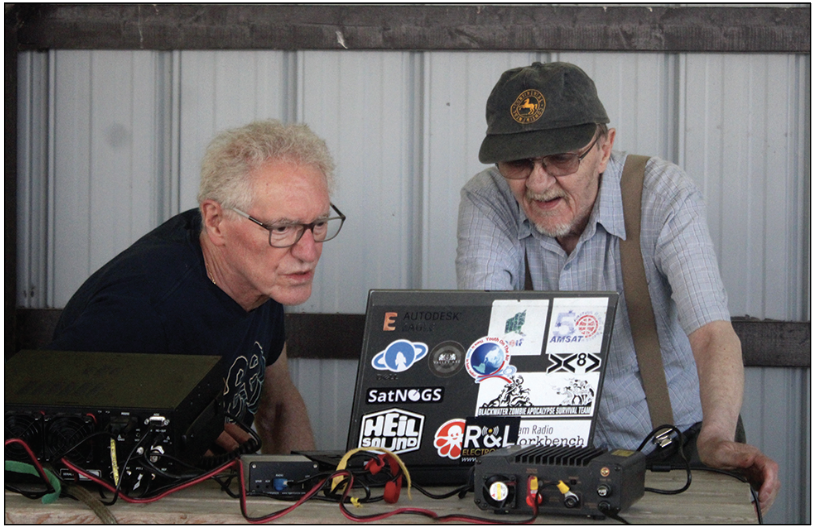Over 50 ed assistants cut for First Nations students

The incredible edible car
July 17, 2018
Bruce Vokes has been the proud owner of five new Toyota vehicles but he says he won’t buy another.
That’s because he recently found out the wiring in his 2015 Tundra truck engine is covered in soy-based material that attracts rodents.
Damage from squirrels munching on much of the wiring under his hood this spring cost $3,347 to repair. Vokes was told the damaged covering was replaced with more soy-based material at the dealership. The service department wound tape around the new covering to fend off future rodent attacks.
But Vokes is skeptical it will work.
“It took 10 days to get my truck back and Toyota said the damage was not covered by the warranty,” he said.
“They are making vehicles that are edible. I swore by Toyota for years and was willing to pay more for one.
“But it ended up slapping me in the face.”
Vokes, a retired heavy machinery operator who lives in Petrolia, says it’s time to go back to petroleum-based wire coverings that don’t appeal to squirrels, rats or mice.
His troubles started one morning in May when he got in his Tundra for his customary drive to get a coffee.
“It wouldn’t start,” he says. “Nothing worked.”
He pulled a small bundle of sticks out from under his hood and had to have his truck towed to the dealership.
“They said the wiring was chewed.”
His invoice from Bailey’s Toyota indicates an inspection found rodent damage to 29 wires that had to be repaired, soldered, shrink wrapped and liquid sealed.
Vokes has since learned that, in recent years, numerous car manufacturers have been using plant-based materials that are often irresistible to rodents.
“Maybe this will alert people,” he said. “I sure hope they aren’t using it in airplanes.”
A quick check on the internet showed Vokes that car-owners across the US have launched numerous class action suits against Toyota and other auto companies including Honda. Car owners are trying to force manufacturers to warranty damage from rodents chewing through engine wiring.
Lawyers in one California suit argued the rodent problem is widespread and impacts tens of thousands of drivers across the US Toyota said the claim was ‘meritless” and last month a federal judge dismissed the California suit.
However, there are several more making their way through the American legal system.
Toyota Canada maintains that the problem of damaged wiring is universal and there’s no proof rodents prefer soy-based materials to plastic or rubber components.
“Rodent damage to vehicle wiring occurs across the industry and the issue is not brand or model specific,” Michael Bouliane, Toyota Canada’s manager of corporate communications, wrote in an email to The Independent. “We are currently not aware of any scientific evidence that shows rodents are attracted to automotive wiring because of alleged soy-based content.”
Vokes says he’d like to see a class action suit started in Canada.
“It’s so bad that they recommend we use dryer sheets, blood meal or peppermint drops, even coyote pee to keep the squirrels away.
“I couldn’t believe it but they sell coyote spray at the store for this kind of thing.”
Vokes said he hasn’t had any problems with his Tundra since the repairs in May. And he was fortunate that his insurance company agreed to cover his repair bill, except for the $500 deductible.
“Some of these car makers are also using corn husks and sugar cane to build their cars. So what do they expect?” says Vokes. “Rodents think it’s a buffet for them.”
Cathy Dobson/The Independent

Over 50 ed assistants cut for First Nations students
July 3, 2025
Read More

Ham radio fans say hello to the Netherlands without leaving Enniskillen
July 3, 2025
Read More

Petrolia splash pad almost ready
July 3, 2025
Read More

Two drowned in the waters off Ipperwash on the Canada Day weekend
July 2, 2025
Read More
